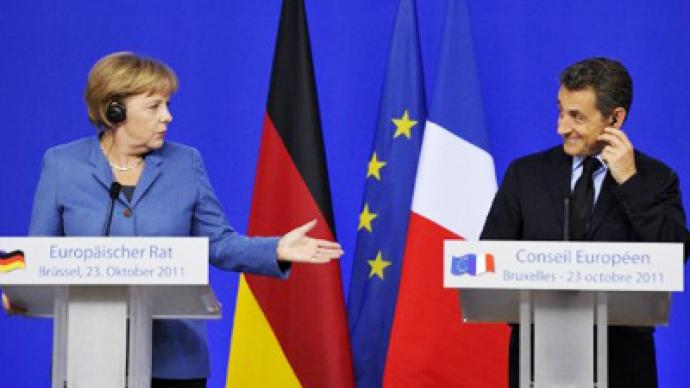Anti-crisis marathon in Brussels kicked off Sunday

Sunday’s meeting of European leaders aimed at resolving the region's debt crisis has brought proposals on the recapitalization of EU banks, bailout package volumes for Greece, the modernization of EFSF and creation of new economic government.
The EU leaders have accepted the framework agreement on recapitalization of the European banks the estimate of what will be required has ranged from €107 to 108 billion and agreed on reinforcement of economic regulation in EC and eurozone through economic government with regular eurozone summits to enforce it.Herman van Rompuy, Head of the EU summit, said the final decision on recapitalization will be made during the eurozone summit on Wednesday“The recapitalization issue has been discussed and we came to the conclusion that we need a co-ordinated scheme to recapitalize banks. Yesterday, the EcoFin (the Council of Ministers of Finance) has made good progress in this matter and the final decision will be announced on Wednesday,” he said.At the same time the negotiations with banks to take losses on their bond holdings were only advancing slowly, but leaders have promised a fully-fledged plan in time for the second summit on Wednesday. A lot of decisions are to be taken over the next governmental meetings in order to save the EU’s economic integrity, thus the meetings should be held frequently and provide comprehensive economic solutions, said Nicolas Sarkozy, the president of France, suggesting establishment the EU economic government with its main purpose discussed in the document“To improve economic governance of the eurozone, the meetings of EU leaders and leaders of the economic institutions should be held on the regular frequent basis in a form of economic government meetings,”The leader of the EU economic government will be appointed every two-and-a-half years along with the EU presidential elections. For the time being until the next elections of the EU president it has been decided to appoint Herman Van Rompuy, President of the European Council, whose presidential powers expire in May, 2012.In the beginning of the crisis, The European leaders were reluctant to make the summit of the eurozone, fearing the emergence of a border between the EU economic core and financial periphery. Anton Tyagnibeda, analyst at InvestCafe, says the comprehensive solution should be given on time avoiding useless procrastinations due the length of the chain of approvals.“Today the economic policy is overseen by the national governments, while monetary policy is assigned to the ECB. But this would require a lot of time to make any ratifications and approvals of a plan of action in each of the EU countries. Today, European leaders must not only agree on effective mechanisms for relief of the debt crisis in the eurozone, but also – most importantly – the use of new long-term incentives for economic development, reflected in the strategy of ‘smart and inclusive growth’ in the EU until 2020. A strong slow-down tendency in some major EU countries leads to the fact that the range of debt problems is expanding, when even regular interest payments on debts are threatened,” Tyagnibeda believes.












